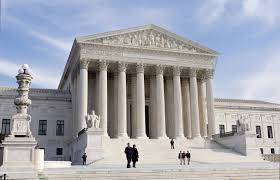Created less than 10 years ago, Snapchat is one of the world's largest leading social media platforms. Snapchat differs from every other social media platform as its core concept is the idea of sharing and taking photos that appear and disappear within moments. Whereas every other digital platform focuses on the idea of displaying and storing photos as keepsakes and memories.
The Beginning:
Produced in 2011 by Stanford University college students Evan Spiegel, Reggie Brown, and Bobby Murphy; Snapchat was initially named "Picaboo," which is what influenced the app's ghost icon logo. Its initial goal was to mimic the way people communicate and engage in real life. Just like how person-to-person interaction only lasts a few seconds and then the moment is gone, the same goes for Snapchat photos.
- A year after its creation, the app developers added a video feature allowing users to send 10-second videos to each other that would disappear after the content played. Then in 2013, the app added a new "Snapchat Story" feature in which users could upload images or videos for all their SC followers to see for up to 24 hours and then the content would disappear.
Part of what made Snapchat so lucrative was its "deletability." Teens are always concerned with their online image and the way they're perceived. Whereas with this app, teens don't have the same worries and stresses about keeping up an "image" because none of the content shared is "permanent" for other users to go back and look at. It's a one-time exchange that limits the amount of time you're able to view the image or video.
- By November 2013 the app had grown so much that Mark Zuckerberg offered to buy Snapchat for $3 billion dollars although they turned it down. A the same time, Google also put up a $4 Billion dollar bid which was also declined.
Picking Up Momentum:
In 2015 Snapchats usage rate reached 2 billion pictures and videos per day, following that, in 2016 it had 7 billion videos a day. Due to the immense growth, Snapchat created an official parent company; Snap Inc. which opened it up to the public market with an initial $25 billion dollar public offering that would begin in 2017.
- SC offers significant opportunities for business through its accessibility for advertising, as it generates millions of views per day.
SC's current stockmarket share price is $14, and market experts project that SC will soon break even in the next year or so by 2022 and will earn an estimated profit of $48 million, after losses. This is quite impressive for a company started less than 10 years ago. As social media continues to expand and grow, so does Snapchat, changing, and adapting to the times, Snapchat isn't going anywhere anytime soon!
Sources:
https://www.buycustomgeofilters.com/blog/snapchat-history-and-updated-timeline
https://www.thestreet.com/technology/history-of-snapchat










